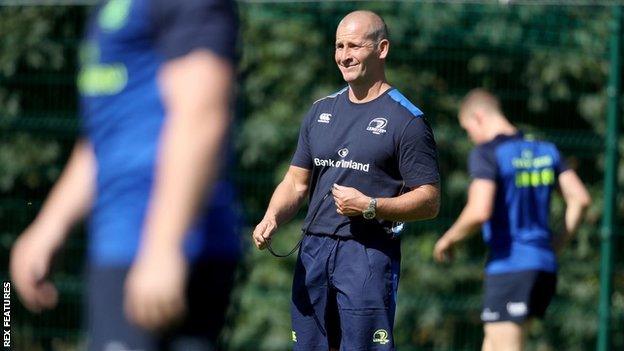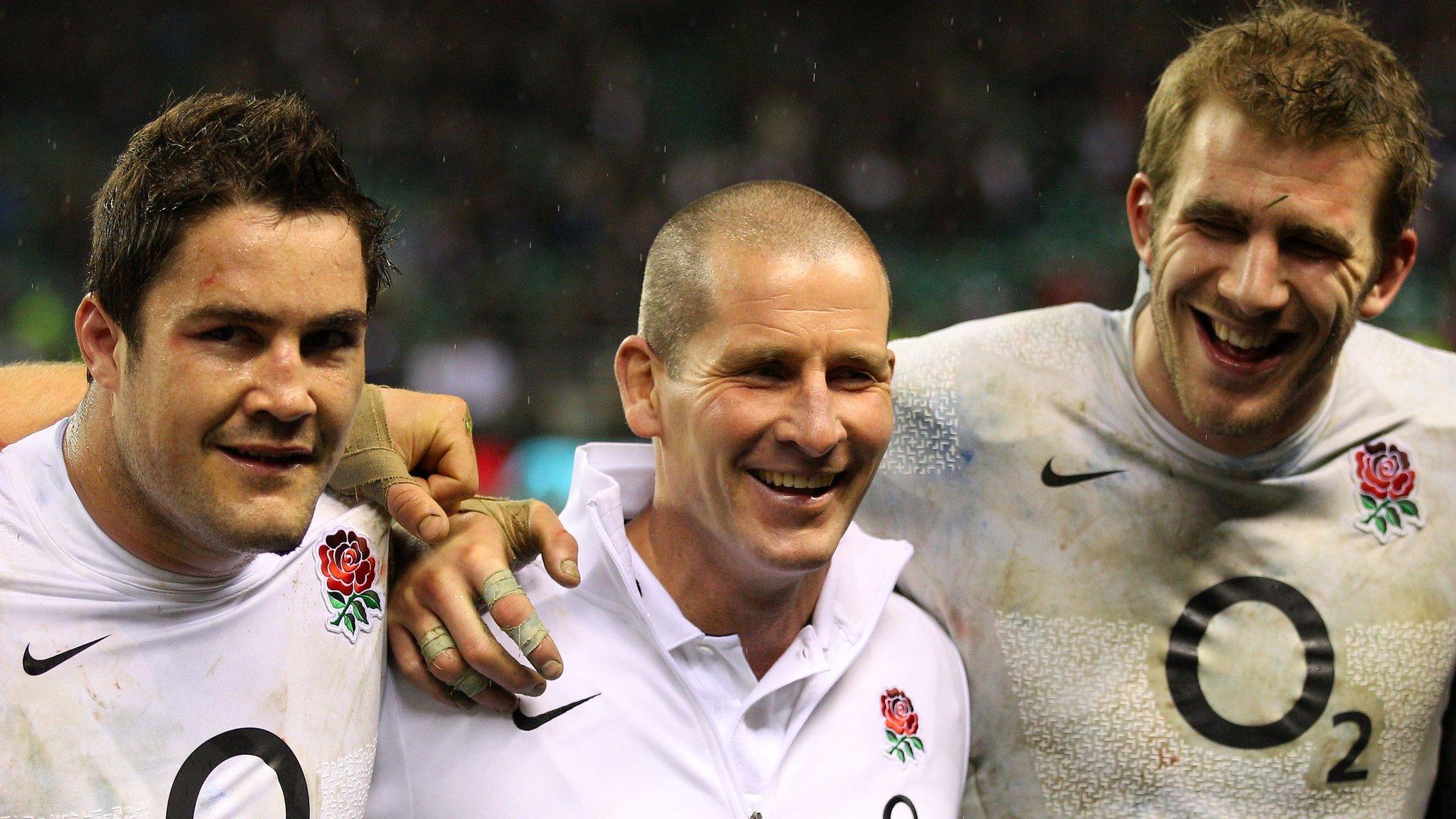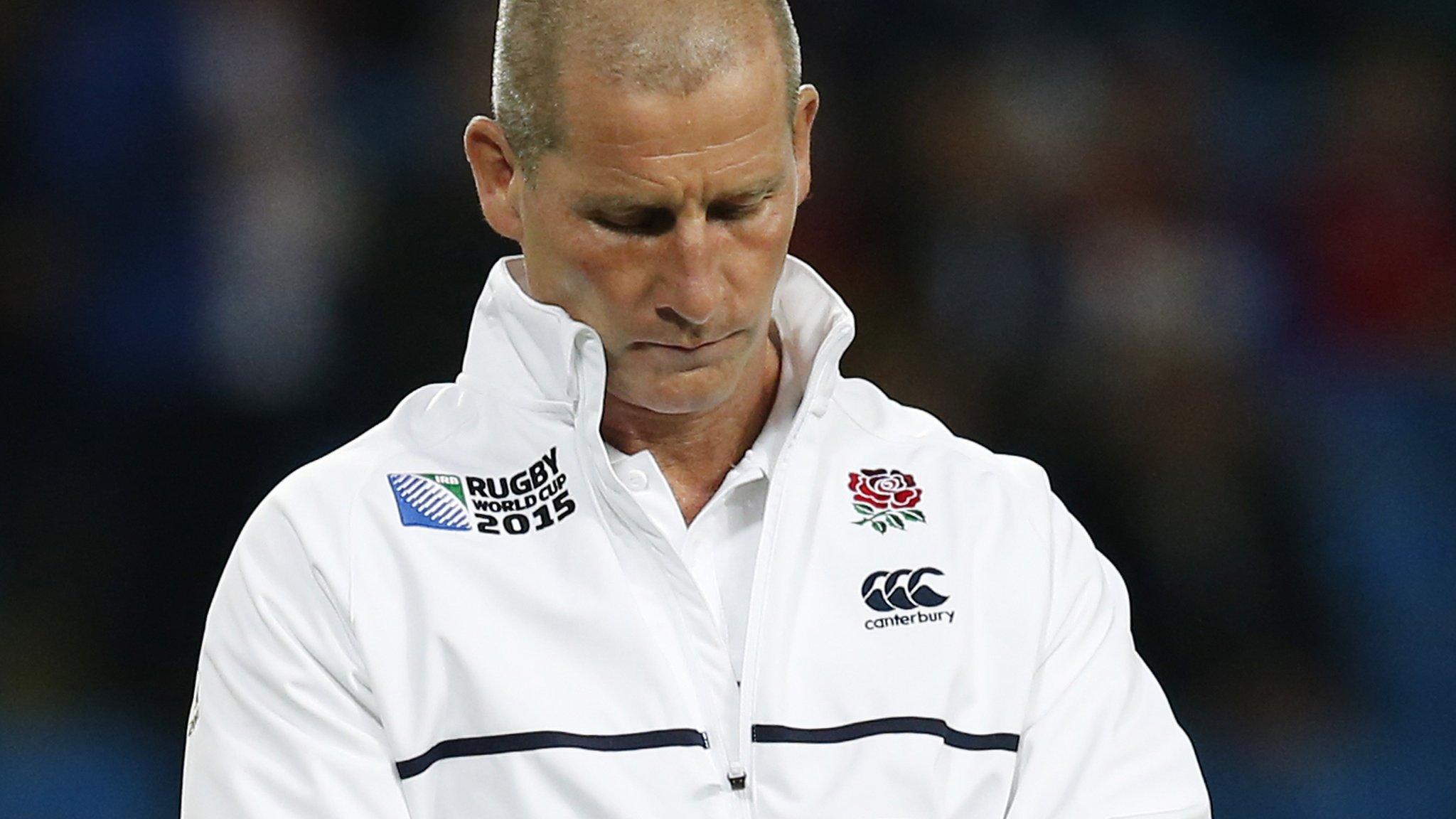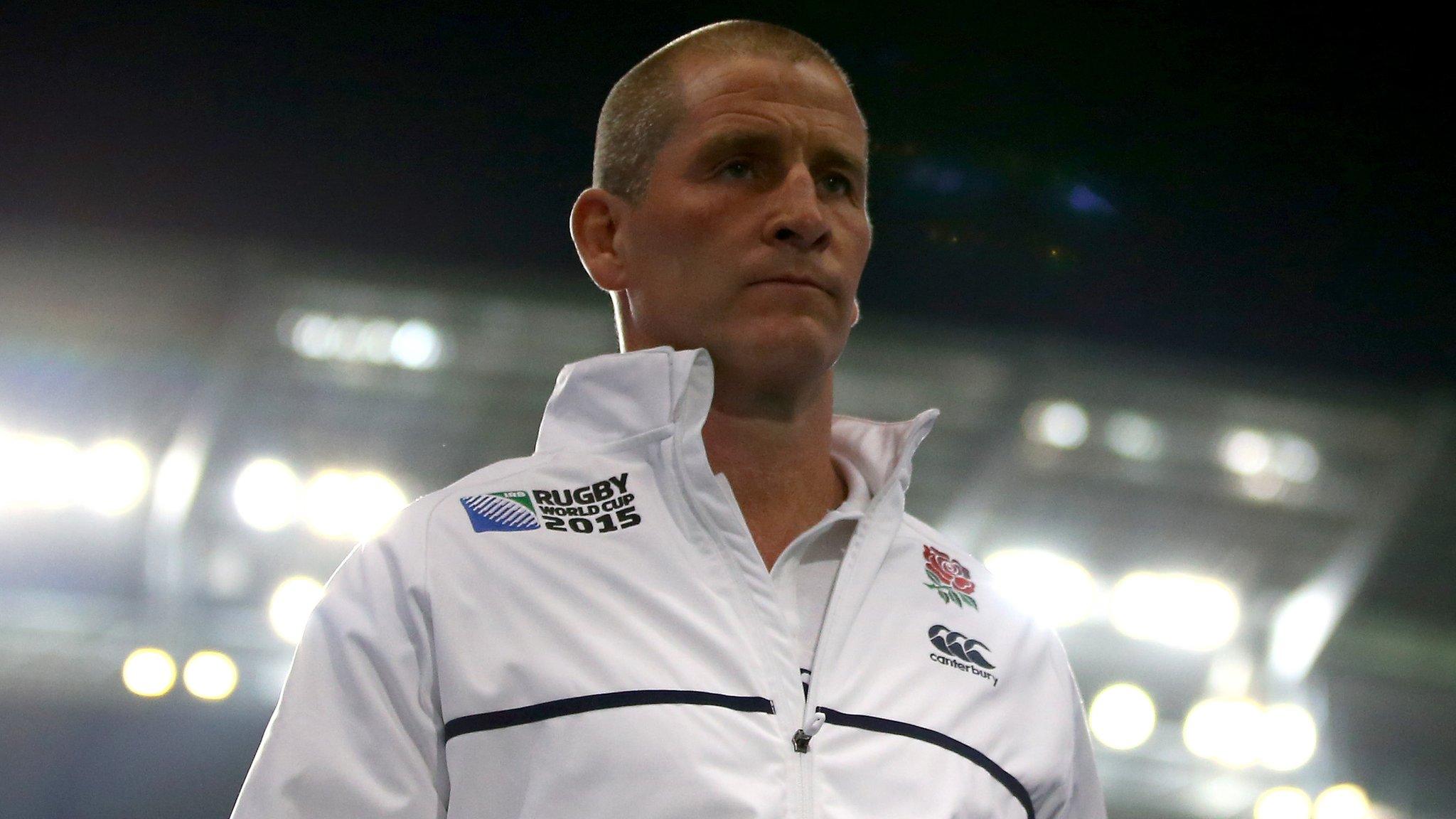Stuart Lancaster: Leinster appoint former England coach
- Published

Lancaster says he is happy to work under head coach Leo Cullen
Former England head coach Stuart Lancaster has joined Pro12 side Leinster as a senior coach.
The 46-year-old fills the gap created by the departure of defence coach Kurt McQuilkin, who is returning to New Zealand for family reasons.
Lancaster resigned after four years as England boss when the hosts failed to get out of their 2015 World Cup pool.
"Stuart has a wealth of experience and is a highly respected figure," said Leinster head coach Leo Cullen.
"We are all looking forward to having Stuart join our team and together helping the players maximise their potential as a group."
Since leaving the England job, Lancaster has had short-term roles with the Atlanta Falcons, British Cycling's world-class performance programme, the English Football Association and, most recently, Counties Manukau in New Zealand's domestic rugby cup competition.
Although he has coached at a higher level than Cullen, Lancaster said: "I'm more than happy to work underneath Leo because I don't know the club, I don't know the environment, I don't know the relationships and everything.
"It suits me down to the ground just to get back into coaching again."
He added: "I come from a player development background, my role in England was not just head coach, I was head of elite player development, and I like to think I can offer Leinster something in that regard as well."
He met Toulon president Mourad Boudjellal in July with a view to coaching the Top 14 club, but the three-time European champions kept faith with Diego Dominguez, who is again under pressure after a surprise 25-21 home defeat by Brive.
Leinster engaged the services of former New Zealand coach Graham Henry in an advisory capacity ahead of the new season, which began for the province on Friday with a 20-8 victory over Treviso.
Leinster chief executive Mick Dawson said: "We are delighted Stuart has agreed to come on board.
"I know, having spoken at length to Stuart, that he is excited by the challenge of getting into club rugby again and the day-to-day interaction with players."
- Published12 July 2016

- Published11 November 2015

- Published10 April 2016
